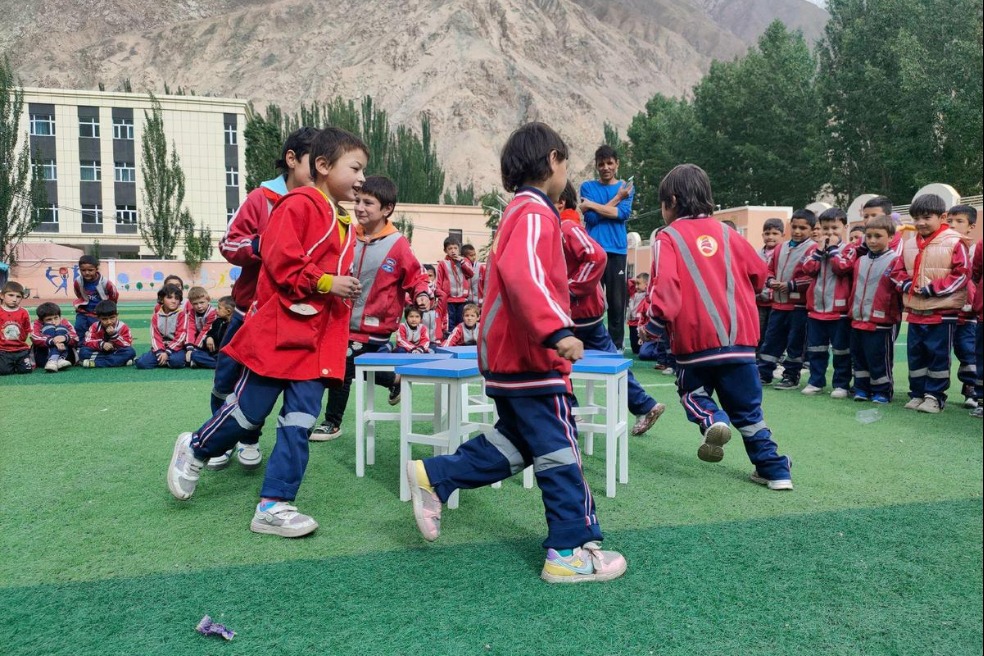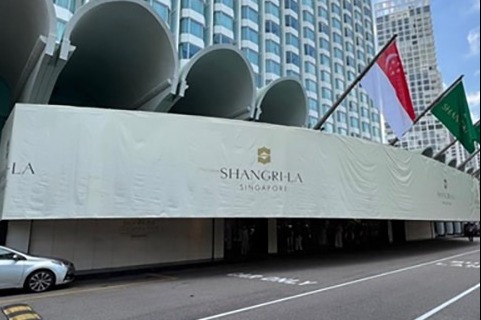CITIES SET THEIR SIGHTS ON BEST TALENT
Series of preferential measures introduced to attract graduates

Every year, graduates across China go to great lengths to find an ideal city to live and work in to fulfill their dreams. At the same time, cities compete to attract talent.
Beijing used to be on top of the list, according to Dong Xiaobing, 36, who was born in Taiyuan, capital of Shanxi province, some 500 kilometers west of the capital.
"People like myself who were born in the 1980s were brought up to believe that Beijing was the 'heart' of China and only the best people could live and work there. So I studied diligently and now work hard to make a living in the city," said Dong, an administrative employee for a property management company.
However, many other cities have developed rapidly in recent decades-and not just first-tier destinations such as Shanghai and Shenzhen, Guangdong province.
For example, Chengdu, capital of Sichuan province, and Hangzhou, capital of Zhejiang province, have attracted an increasing number of professionals due to job opportunities at leading companies and a pleasant natural environment.
Beijing remains a popular choice for graduates, but some of them have been deterred by the city's high housing costs, fierce competition for jobs and sprawling urban area, which can mean long commuting times.
In view of this, authorities in the capital last month announced policies aimed at attracting qualified graduates to settle in the city.
Issued by the Beijing municipal government, the policies provide graduates with housing benefits and relaxed household registration, or hukou, procedures.
Announced by the Beijing Municipal Human Resources and Social Security Bureau on July 16, the policies seek to attract graduates with a master's in a "first-class discipline", or those with at least a bachelor's degree from one of seven Chinese universities that are in the top 200 globally.
Successful candidates can register their Beijing hukou, entitling them to social service and welfare benefits.
Wei Wei, 23, who is studying languages at Nanjing University in Jiangsu province, and is due to graduate in 2023, said: "It's great to get a Beijing hukou. As the nation's political and cultural center, the city can provide numerous opportunities and career platforms.
"The new policies will definitely have an effect on graduates' career plans, including myself," she said. "I will adjust my study and internship plans for the next two years to include Beijing as a choice for my future job location and will prepare myself for this."
Wei added that due to the new policies, more students from the seven universities will be attracted to the capital, which will add to the pressure in competing for jobs.
The policies extend the age limits for top graduates seeking work. Those employed for the first time within two years of graduation are covered this time. Graduates who are employed and hold a bachelor's degree should not be older than 26, those with a master's should not be older than 30, and the age limit for candidates with a doctorate is 35.
Changes on way
Metropolises such as Beijing, Shanghai and Guangzhou, capital of Guangdong, have announced population control targets since 2016 to deal with big-city problems and pursue sustainable development.
Beijing aimed to cap its permanent residential population less than 23 million by last year, when the capital's population stood at 21.89 million, according to official data.
Facing the problem of an aging society, and chasing high-end growth, the capital is making efforts to retain talent as part of its strategy for improved expansion.
Many cities nationwide have introduced incentives to attract qualified graduates.
For example, Chengdu, Tianjin and Wuhan, capital of Hubei province, introduced policies to attract graduates, followed by Zhengzhou, capital of Henan province, Shenyang, the Liaoning provincial capital, and Xi'an, capital of Shaanxi province.
In Guangzhou and Shenzhen, graduates can obtain their hukou after leaving college, with no additional requirements. This has led to rising populations in the two cities in recent years.
Shanghai is the top competitor to Beijing. The two cities have rich educational resources and fast-growing economies, in addition to long histories and a host of cultural attractions.
In 2018, the Shanghai government announced that graduates from Tsinghua and Peking universities, which are both in Beijing, could register as Shanghai citizens directly after graduation. Last year, the policy was expanded to four universities in Shanghai.
Wu Shuai, associate researcher at the Ministry of Human Resources and Social Security's Human Resources Research Institute, said young talent is the "core competitiveness of cities".
"Cities that can attract such talent to work in the industries they are developing will have a better future," Wu said.
The relaxed hukou registration rules in large cities will have a significant impact on reforming the sector, he said.
However, Wu added that the flow of talent is affected by a number of factors, with high housing costs a major problem in cities such as Beijing and Shanghai.
"Support for talent, such as lowering housing costs, is as important as the introduction of new regulations," he said.
Pressure and prospects
Zhang Xinming, 24, who is majoring in materials and chemical engineering at Tsinghua University, said that new policies introduced in Beijing are not sufficient to attract different types of talent.
"Frankly speaking, Beijing is not that great for me. I needed to buy an apartment to settle down in. In view of current housing prices, this required a lot of money. Obtaining a Beijing hukou doesn't matter that much to me," he said.
The day the new regulations were announced in Beijing, a preferential policy on renting accommodations was published. This has been viewed as a way to cut rents and ease people's financial burdens, especially those of young graduates.
Jiang Baihui, 23, who is studying for a master's in nuclear energy at Tsinghua University, said she plans to work in Beijing after graduation, and the new policy will help her cut living costs at the start of her career.
"For people planning to live in Beijing after they graduate, these policies are great news. However, the long commuting times and high housing prices in the city are a big burden for the young, and these two factors could prevent the policies having a beneficial effect," Jiang said.
Unlike Beijing, second-tier cities such as Hangzhou, Nanjing, and Jinan and Qingdao in Shandong province offer housing subsidies to attract graduates and other talent. The amount provided ranges from 100,000 yuan ($15,430) to 2 million yuan for buying apartments. Thousands of yuan is provided to cover rent, depending on applicants' qualifications.
Beijing has so far not provided housing subsidies for graduates, but some companies in the capital have come up with housing solutions for young employees.
"This is a good trend," said Ma Yanqiu, 23, a medical student at Peking University Third Hospital, who will graduate in 2024. "The policies can attract more ambitious young people to contribute their talent to Beijing and grow with the city."
Lin Xuliao, a student work counselor at Beijing Foreign Studies University, who is in charge of helping students with career planning, said talent introduction policies are an inevitable choice for cities.
"In Beijing, the current policies accord with the central and the municipal government's overall plans for the capital," he said.
"Talent in education and in industries such as artificial intelligence is encouraged to settle in the city. The policies also point the way for universities to combine talent cultivation with the nation's policies to meet society's needs."
Feng Xiaojie contributed to this story.





Today's Top News
- Fueling conflicts in Asia-Pacific criticized
- US slammed for repeated policy shifts
- Trade-in policy drives domestic consumption
- Washington playing devious blame game with violating Geneva agreement claims
- Former vice-chairman of Central Military Commission dies
- US seriously undermines economic talks with China






























